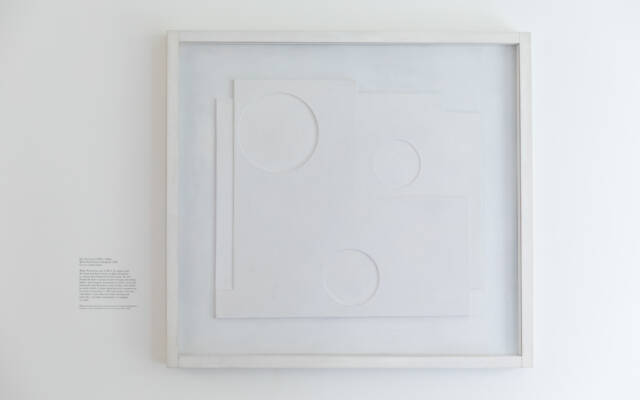
This exhibition will explore how, after initially finding success with figurative carvings in the 1920s and early 1930s, Barbara Hepworth developed a distinctive abstract practice that aimed ‘to discover some absolute essence in sculptural terms giving the quality of human relationships.’ These relationships were not just between individuals, but also between people and their environments. The strings that Hepworth began to use in her work from the 1940s expressed, as she wrote, ‘the tension I felt between myself and the sea, the wind or the hills’.
Hepworth’s contemporaries similarly turned to abstraction in order to evolve a universal language of art that could engage any viewer. This ethos was politically charged in the face of mounting global division and unrest in the lead up to the Second World War. As we live through our own tumultuous times, the power of abstraction to transcend borders and contexts remains urgent.
On display will be sculptures by Hepworth spanning 40 years between 1932 and 1972, together with works by Ronald Moody, Henry Moore, Winifred Nicholson, Ben Nicholson and Naum Gabo to document the development of abstract art in Britain. A highlight of the exhibition is Ben Nicholson’s masterpiece white relief, 1935 Quai d’Auteuil, recently acquired for Wakefield’s collection through the Acceptance in Lieu scheme and with significant grants from the National Heritage Memorial Fund, the Art Fund, the Wolfson Foundation and the Henry Moore Foundation as well as generous donations from a host of other supporters including The Hepworth Estate. Three prints by Naum Gabo, gifted to Wakefield in 2020 by Graham & Nina Williams through HM Government’s Cultural Gifts Scheme, a painting by Winifred Nicholson (1937) bequeathed to the gallery by the artist’s daughter-in-law and a wooden sculpture by Ronald Moody gifted by the Ronald Moody Estate will be displayed for the first time.
Works by contemporary artists including Jadé Fadojutimi, Rachel Jones, Ro Robertson and Cerith Wyn Evans, show the enduring capacity for abstraction to express human experiences and relationships, with each other and the world around us.








